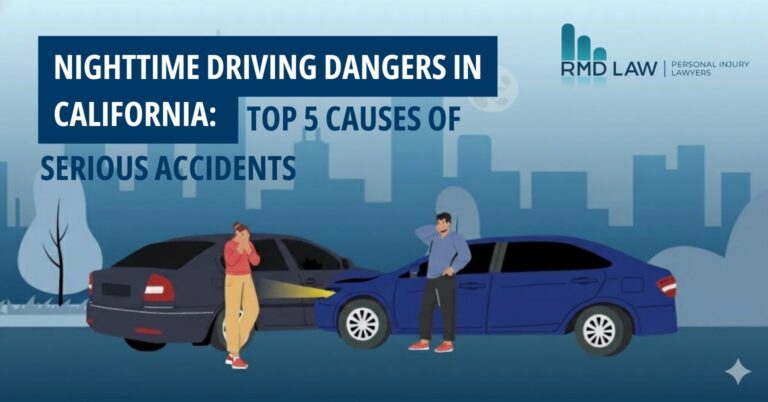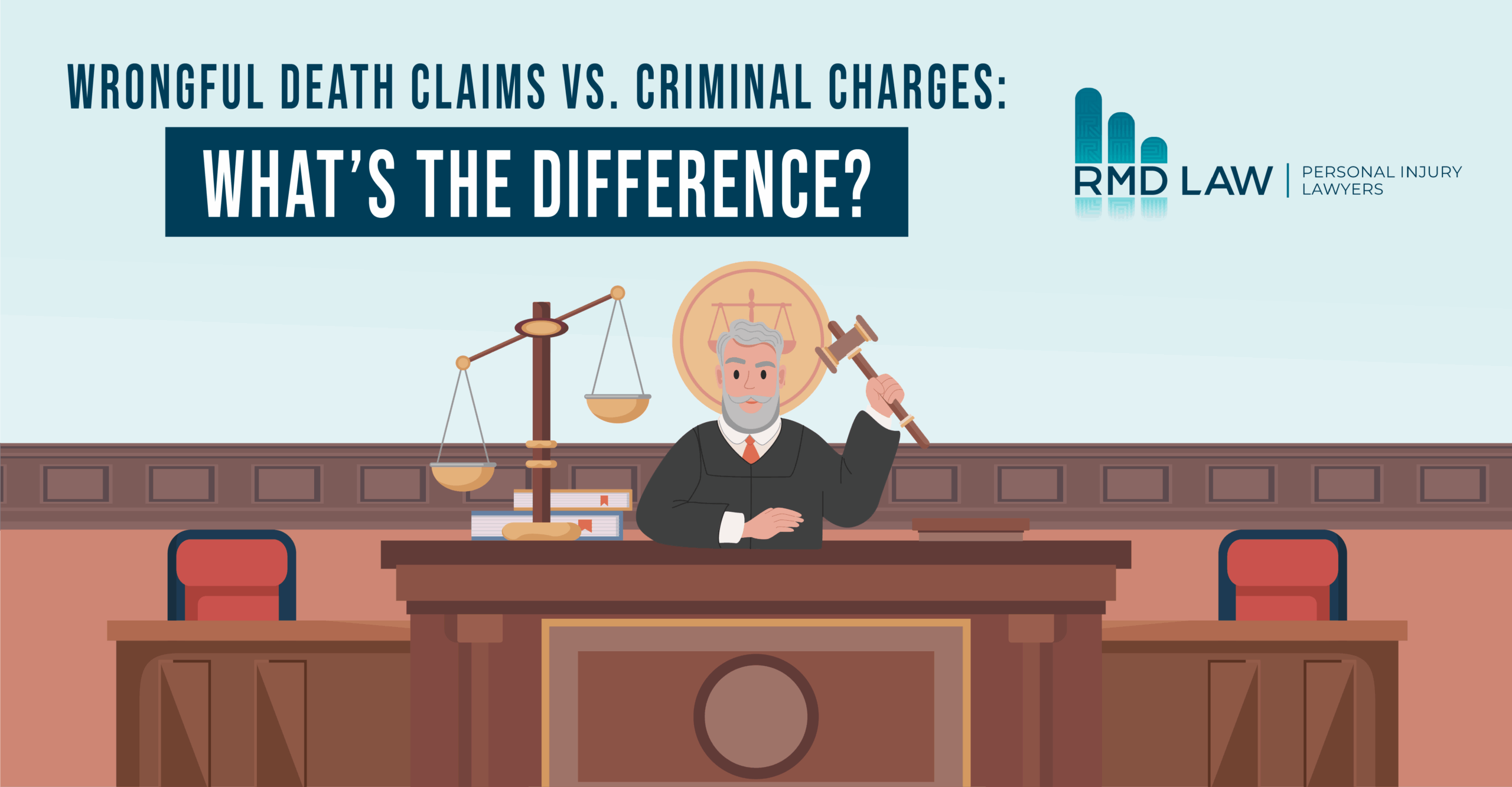
Key Takeaways:
Wrongful Death Claims in California Are Civil Actions for Family Compensation
-
Families file a wrongful death claim in California to recover economic losses (funeral costs, lost financial support) and non‑economic losses (loss of companionship); civil cases are independent from, and can proceed alongside, any criminal case.
Criminal Charges Are Prosecuted by the State to Punish Unlawful Conduct
-
District attorneys – not families – bring charges such as murder, manslaughter, or DUI causing death to seek penalties like incarceration, fines, and probation, with limited victim restitution rather than comprehensive compensation.
Burden of Proof Is Lower in a California Wrongful Death Claim than in Criminal Court
-
Civil plaintiffs must prove liability by a preponderance of the evidence (>50%), while prosecutors must prove guilt beyond a reasonable doubt; one reason wrongful death claims in California can succeed even after a criminal acquittal.
Intent Drives Criminal Homicide, while Negligence Can Support a Civil Wrongful Death Case
-
Criminal homicide typically requires proof of intent or malice, but a civil wrongful death case can be based on negligence or recklessness (e.g., a fatal DUI crash), allowing families to pursue compensation even when conduct was accidental.
California Wrongful Death Claim or Criminal Case – What You Need to Know
Losing a family member unexpectedly is devastating. The emotional toll such a loss takes on families can be overwhelming, affecting both their mental and emotional well-being. When a loved one dies suddenly, families are left to make big decisions at the hardest possible moment. In the aftermath, families in California often encounter wrongful death claims and criminal charges as two possible legal avenues for justice. Are they the same thing? Do you have to choose one path over the other?
These are very different processes with distinct purposes. Here’s a general overview: a wrongful death claim is a civil lawsuit your family brings to recover money for losses like financial support and companionship. In a wrongful death claim, it is essential to establish a direct causal link between the defendant’s actions and your loved one’s death, and strong proof and evidence are required to support the claim. Criminal charges are filed by a prosecutor to punish illegal conduct. They’re separate, they can happen at the same time, and they serve different purposes. It’s also why a family may win a civil case even if there’s no criminal conviction – the rules and proof required are different.
This blog will break down wrongful death claims in California versus criminal charges, explain who can file each, and highlight key differences – such as the burden of proof, intent, and outcomes. We’ll also explain why intent matters in criminal homicide but negligence can be enough for a civil claim. Finally, we’ll share how an experienced wrongful death attorney can help your family evaluate next steps with compassion and clarity. Having an experienced attorney is crucial to navigate the complexities of a California wrongful death lawsuit and to ensure your rights are protected.
Both wrongful death claims and criminal charges provide different avenues for justice. It is important to pursue justice within the legal system and within the required time limits to ensure families have access to remedies.
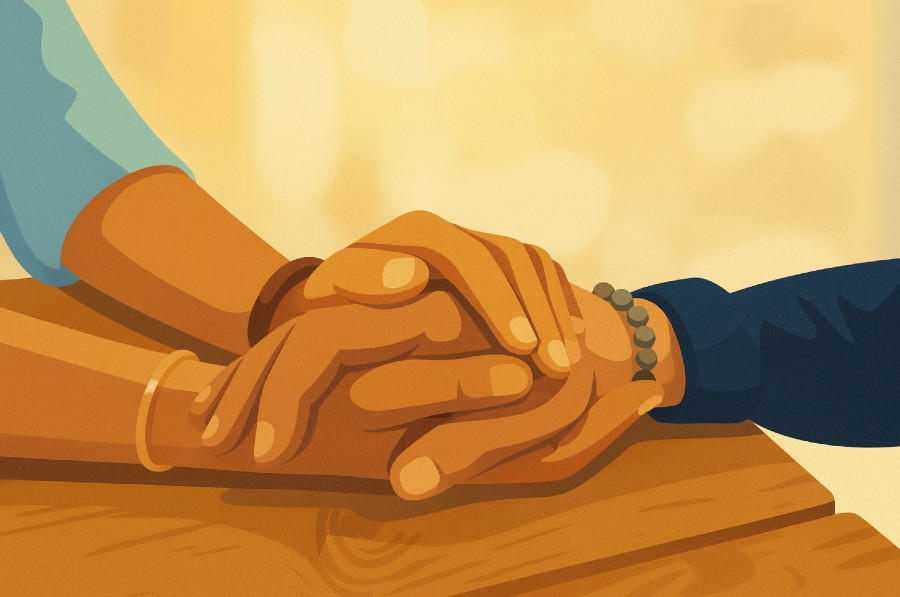
What Is Wrongful Death in California?
A wrongful death claim is a type of civil lawsuit brought when someone’s death is caused by another party’s wrongful act or negligence. California’s wrongful death legal framework is governed by specific state laws that define who can file a claim, the types of damages recoverable, and the procedures involved. California’s wrongful death statute provides the legal basis for these claims, outlining the rights and procedures for eligible parties. In California, the law empowers specific family members to seek compensation through a wrongful death action.
California Code of Civil Procedure §377.60 defines who can file: usually the decedent’s surviving spouse or domestic partner, children, and other heirs or dependents are eligible to bring a claim. California’s wrongful death statute establishes the legal framework for filing and specifies which individuals qualify as eligible claimants under the law. In other words, close family members (and certain financially dependent individuals) have the right to sue the responsible party for the losses they suffer due to their loved one’s death.
What constitutes “wrongful” death? Essentially, it’s any death caused by another’s legal fault. This includes fatalities from negligence (like careless driving or medical malpractice), recklessness, or even intentional acts. Key elements in a wrongful death case involve proving that the defendant’s wrongful act or negligence caused the death, and that surviving family members incurred losses as a result. Those losses form the basis of the civil claim. Common examples leading to wrongful death suits include fatal car accidents, car accident, workplace accidents, medical errors, or violent assaults.
To illustrate the scope: fatal accidents are unfortunately common in California. In 2023 alone, 4,061 people lost their lives in motor vehicle crashes in California. Many of these tragedies give rise to wrongful death claims by families seeking justice. Alcohol-related crashes are a frequent factor – nearly 28% of California’s traffic fatalities in 2022 involved a DUI driver. These statistics underscore why wrongful death claims are an important legal remedy for grieving families. Filing a California wrongful death lawsuit is a critical step for families to pursue justice and compensation under California’s wrongful death laws.
It is important to distinguish between wrongful death claims and survival actions. A wrongful death claim is brought by the deceased person’s family members for their own losses, while a survival action is brought on behalf of the deceased person’s estate to recover damages the deceased suffered before death. Any damages awarded in a survival action go to the deceased’s estate and may be used to pay outstanding debts or distributed according to the deceased’s property and succession laws.
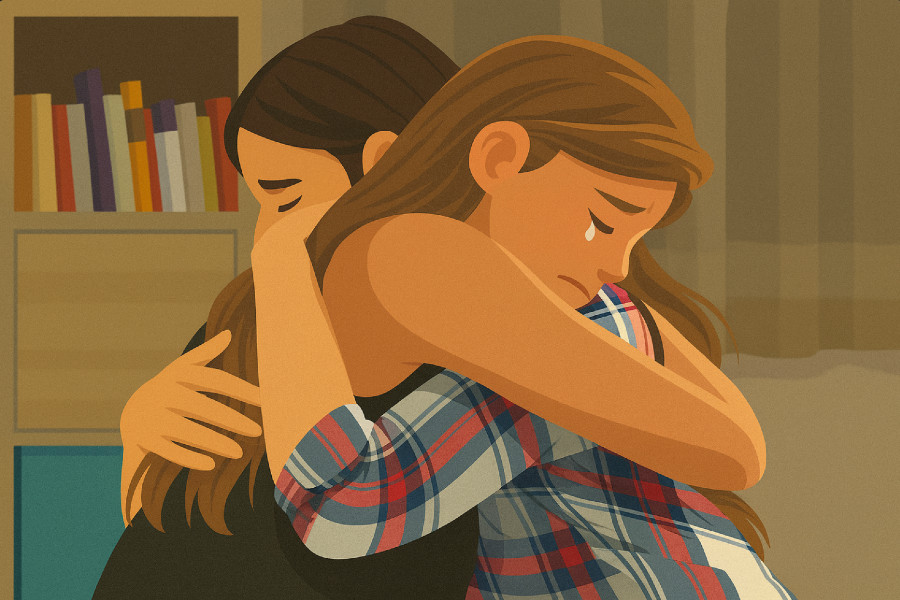
Wrongful Death Claims Are Civil Lawsuits (Not Criminal Cases)
It’s important to understand that a wrongful death claim is a civil action, not a criminal case. That means the case is handled in civil court and is focused on compensating the victim’s family for their losses, rather than punishing the offender. The party who brings the lawsuit is the deceased person’s estate or family (the plaintiff), and the party being sued (the defendant) can be an individual, company, or other entity alleged to be responsible for the death.
In survival actions, the victim’s estate may recover damages for harm suffered by the deceased prior to death, such as pain and suffering or medical expenses incurred before passing. The outcome sought is monetary damages – for example, to cover lost financial support, funeral expenses, and the family’s loss of companionship and comfort. Any damages awarded in a wrongful death suit go to the family, not the state.
Crucially, a wrongful death civil case is independent of any criminal proceedings. It can proceed regardless of whether criminal charges are filed over the death. In fact, wrongful death actions can be (and often are) pursued even if the responsible person also faces criminal charges for the same death. The two cases will have different standards and objectives, as we’ll explore next. For families, this means you do not have to choose between pursuing a civil wrongful death lawsuit and seeing criminal charges brought – you can have both. The civil claim provides a path for families to seek justice in the form of compensation, even if the criminal justice system is also addressing the incident.
What Are Criminal Charges in a Death Case?
Criminal charges are brought by the government (through a prosecutor, such as a District Attorney in California) against a person accused of violating a law. In the context of someone’s death, criminal charges could include offenses like murder, manslaughter, or related crimes (for example, vehicular manslaughter for a deadly DUI crash). Unlike a wrongful death lawsuit, the victim’s family does not file or control the criminal case – the government prosecutes the defendant on behalf of society. The main goal is to determine guilt and, if the defendant is convicted, to impose penalties (punishment).
In a criminal homicide case, the prosecution must prove that the accused person committed a crime defined by statute. Criminal law focuses on offenses against the state’s laws: “Criminal law, as distinguished from civil law, is a system of laws concerned with crimes and the punishment of individuals who commit crimes.”
In practical terms, this means if someone is charged with murder or manslaughter, the state is seeking to hold them criminally liable for a wrongdoing against society. The purpose is not to compensate the family (though courts may order restitution to victims in some cases), but to penalize the offender through consequences like imprisonment, fines (paid to the state), probation, or other sanctions.
Criminal cases related to a death require proving elements like the defendant’s intent or state of mind. For example, first-degree murder in California generally requires proof of malice aforethought and premeditation (intent to kill). Even a lesser homicide charge (like involuntary manslaughter) involves showing a certain level of intent or gross negligence under criminal law standards. This emphasis on intent (mens rea) is a key difference from civil wrongful death claims, as we’ll discuss below.
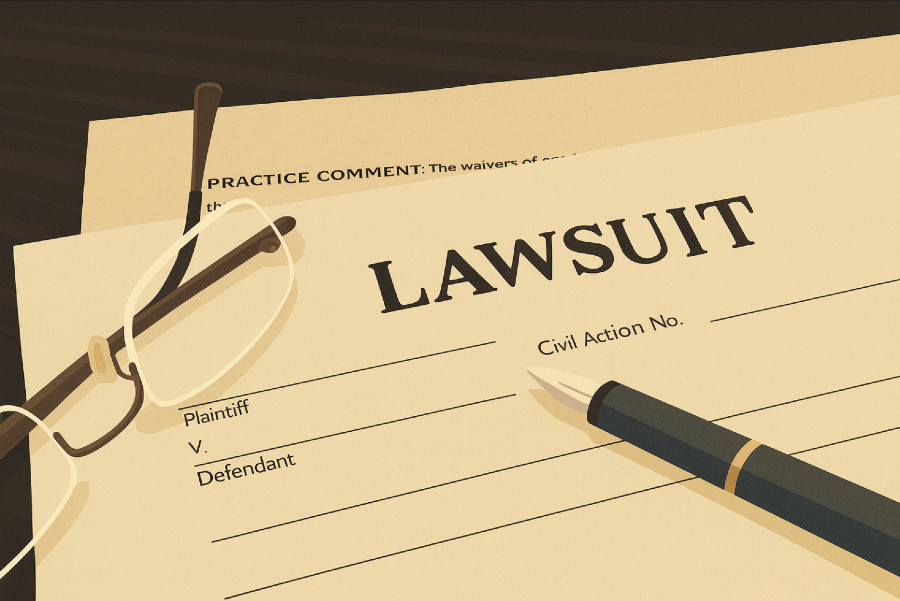
Key Differences Between a Wrongful Death Claim and Criminal Charges
Wrongful death lawsuits and criminal cases may arise from the same tragic incident, but they operate in different arenas. Here are some of the fundamental differences between the two:
Purpose
A California wrongful death claim seeks to compensate the surviving family members for their losses resulting from the death, including financial support, emotional suffering, and other related damages. This compensation aims to address the tangible and intangible hardships the family endures, such as lost income, funeral expenses, and the profound loss of companionship and moral support.
In contrast, a criminal prosecution’s primary purpose is to punish the wrongdoer for violating the law and to protect the public by deterring similar conduct. The civil case is focused on making the family “whole” monetarily, providing financial relief and recognition of their suffering, whereas the criminal case focuses on justice for the state through penalties like jail time, fines, or probation. While both legal paths address the consequences of a wrongful death, they serve distinct roles within the justice system and operate independently from each other.
Who Initiates the Case
A wrongful death lawsuit is initiated by the decedent’s family or estate filing a claim in civil court (the family acts as the plaintiff). Only certain relatives or dependents have legal standing to sue, as defined by California law, which carefully outlines who qualifies to bring such claims to ensure the rightful parties can seek justice.
By contrast, criminal charges are filed by a government prosecutor (e.g. a District Attorney) – not by the family – in criminal court. The case is titled People of the State of California vs. [Defendant], underscoring that it’s the state’s case, and the prosecutor decides whether to bring charges and how to pursue them, based on the evidence and applicable criminal statutes.
Focus of the Claim vs. Charge (Losses vs. Offense)
In a wrongful death claim, the focus is on compensating the surviving family members for their losses. These losses are generally divided into economic damages and non economic damages. Economic damages include quantifiable financial losses such as lost income, medical expenses, and burial expenses. Non economic damages cover intangible losses, such as the loss of love, companionship, care, comfort, moral support, and sexual relations. The law recognizes that the loss of moral support and sexual relations can create a significant emotional and relational void, and these are compensable as part of non economic damages.
Essentially, the civil case asks, “How has this death financially and emotionally impacted the survivors?” In a criminal case, the focus is on the offense against the law – was a crime (like homicide) committed by the defendant? The “loss” being addressed is society’s loss of safety or order due to a law being broken, not the personal losses of the family (except via any separate victim restitution process).
Burden of Proof
The burden of proof – how convincing the evidence must be – is much higher in a criminal case than in a civil case. In a criminal trial, the prosecution must prove the defendant’s guilt “beyond a reasonable doubt,” which is the highest standard in our legal system (essentially requiring near certainty of guilt). In a civil wrongful death trial, the plaintiff must prove the defendant’s liability by a preponderance of the evidence, meaning it’s more likely than not that the defendant’s actions caused the death. The decedent’s death is the event that triggers the wrongful death claim and the need to establish liability.
This is a significantly lower threshold – often explained as just over 50% certainty. This difference in standards means that it’s possible for a defendant to avoid criminal conviction yet still be found civilly liable for wrongful death, since the civil jury can be convinced by a lower level of proof.
Intent and Fault Requirements
In a wrongful death claim, liability is based on proving the party’s negligence or someone else’s negligence that caused the death. Establishing that the death resulted from another party’s negligent actions is essential to recover damages in a civil case. In contrast, criminal cases require proof of intent or recklessness beyond a reasonable doubt.
Criminal homicide charges usually require proving a certain intent or mental state. For example, to convict someone of murder, prosecutors must show the killing was intentional or done with malice. Even for manslaughter, there’s typically a requirement of criminal negligence or recklessness. Wrongful death claims, however, do not require intent to kill.
A defendant can be held liable for wrongful death due to ordinary negligence – for instance, a distracted driver who accidentally causes a fatal crash didn’t intend to kill someone, but can still be civilly liable for wrongful death. In civil court, it’s sufficient to prove the defendant was legally at fault (even through negligence or carelessness) for the fatal incident. In summary, intent is a crucial element in criminal cases, whereas civil wrongful death focuses on causation and harm rather than the defendant’s state of mind.
Outcomes
The outcome of a wrongful death lawsuit is an award of damages (money) paid by the defendant (or their insurance) to the deceased’s family if the defendant is found liable. These damages are awarded to the family or estate as a result of the victim’s death. These damages can include economic losses (like lost income and support) and non-economic losses (like loss of companionship or emotional distress).
In some cases, punitive damages might be available in civil court if the defendant’s conduct was especially egregious (though California generally does not allow punitive damages in a pure wrongful death claim, except via a related survival action for the decedent’s own injuries). The outcome of a criminal case, on the other hand, is a sentence if the defendant is convicted – this could be incarceration (jail or prison), probation, fines payable to the government, community service, etc. The criminal court may impose a prison term or other penalties appropriate to the offense.
Notably, a criminal conviction doesn’t result in the family receiving compensation, except that sometimes a criminal court can order the offender to pay restitution to the victim’s family for certain expenses. But those payments are typically limited and are part of sentencing, not a comprehensive damages award like in civil court. In short, civil cases = defendant held liable for money damages; criminal cases = defendant found guilty and given punishment.
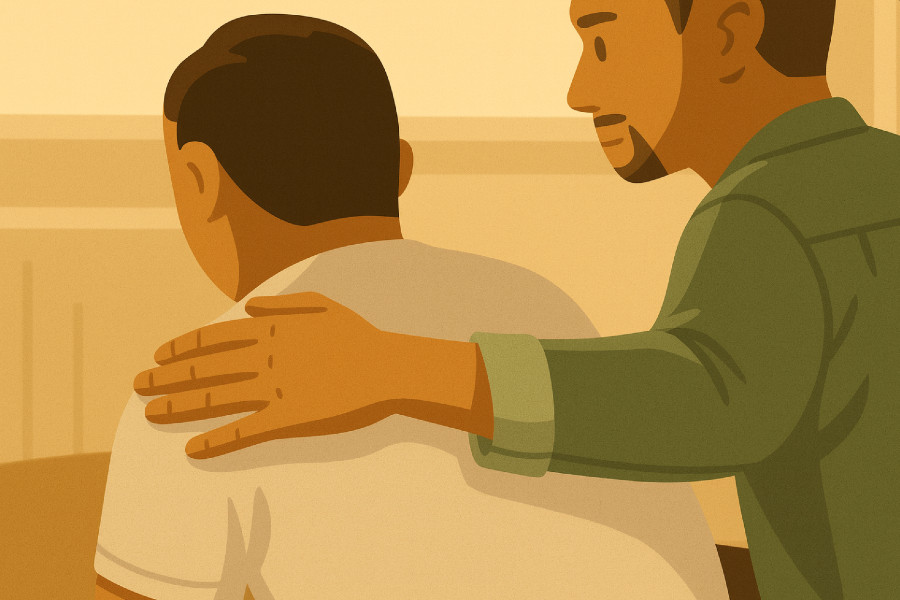
Overlap of Civil and Criminal Cases: Independent but Related
It’s natural to wonder how a single tragic incident can lead to both a criminal trial and a wrongful death lawsuit – and how they affect each other. The key point is that the civil and criminal cases are independent. They may run in parallel or one after the other, but the outcome of one does not dictate the outcome of the other. There is no “double jeopardy” problem because one is not retrying the person for the same crime; rather, it’s a separate civil matter. In fact, California law (like other states) explicitly allows a wrongful death suit even if the defendant is not found guilty in a criminal court.
A famous example is the O.J. Simpson case. Simpson was acquitted of murder in his 1995 criminal trial – the jury did not find him guilty beyond a reasonable doubt. However, the victims’ families then sued him in civil court for wrongful death. In that civil trial, a different jury found Simpson liable for the deaths and awarded the families $33.5 million in damages. The civil jury was persuaded that it was more likely than not that Simpson’s actions caused the deaths, even though the criminal jury had reasonable doubts. Legally, these differing outcomes don’t conflict because of the different burdens of proof and purposes of each system. The Simpson case highlights that even an acquittal criminally does not prevent a civil finding of liability.
Similarly, many drunk driving fatality cases have two tracks: the state prosecutes the driver for crimes like DUI or vehicular manslaughter, and the family files a wrongful death claim. The criminal case might result in a conviction or acquittal, but regardless, the family’s civil case can proceed. If the driver is convicted, that criminal verdict can actually bolster the civil case (since a conviction establishes certain facts of wrongdoing). But even if the driver isn’t convicted, the family can still win in civil court by meeting the lower burden of proof. The two processes recognize different standards and forms of justice – criminal law requires proof beyond a reasonable doubt to take away someone’s liberty, whereas civil law uses a lower standard to determine financial liability.
Intent vs. Negligence:
Another overlap scenario is intent. Some deaths are intentional (e.g. assaults or homicides), and those will likely lead to both murder charges and wrongful death suits. Other deaths are accidental (e.g. a fatal fall due to a property owner’s negligence) – these might not result in any criminal charges at all (since negligence alone can be non-criminal), but they can still give rise to a wrongful death claim.
The civil system thus provides a remedy for families even when the death was a tragic accident or the result of negligence, where criminal law might have no role because there was no crime. This underscores why wrongful death claims are so important – they fill the gap by holding people or entities financially accountable for deadly negligence, not just intentional crimes.

Statute of Limitations and Timing in California Wrongful Death Claims
When it comes to filing a wrongful death lawsuit in California, timing is crucial. Under California law, the statute of limitations for most wrongful death claims is two years from the date of the deceased person’s death. The period following a person’s death is critical, as strict legal deadlines apply for initiating wrongful death and survival claims. Family members or the personal representative of the deceased’s estate must file within this two-year period to preserve their right to seek financial compensation. Missing this deadline can result in dismissal, regardless of the case’s merits.
There are important exceptions. For wrongful death claims arising from medical malpractice cases, the statute of limitations is stricter: you must file within one year from the date the injury was discovered or within three years from the date of injury, whichever comes first. Families affected by medical malpractice should act promptly and consult a wrongful death attorney familiar with these nuances.
If the deceased was a minor, the statute of limitations may be tolled until the minor reaches adulthood. Additionally, wrongful death cases resulting from felony homicide may have extended filing deadlines. These exceptions require careful legal analysis. Disputes over wrongful death claims or the statute of limitations may be resolved in superior court. California Code of Civil Procedure governs these time limits, so surviving spouses, domestic partners, and other eligible family members must be aware of the deadlines that apply. Even if there is no surviving spouse or domestic partner, the personal representative or qualified family members must still comply with the statute of limitations.
Because timing is critical in any California wrongful death case, consulting an experienced wrongful death attorney promptly is essential. A knowledgeable attorney can clarify applicable deadlines, gather evidence, and guide families through the legal process to protect their rights. Acting quickly preserves your ability to seek compensation and helps ensure justice for your loved one’s death.
Understanding the statute of limitations and timing requirements is a vital first step for families seeking justice and financial compensation. Don’t risk losing your right to file a wrongful death lawsuit: contact a qualified wrongful death attorney to navigate California’s wrongful death statute and pursue the compensation your family deserves.

How a Wrongful Death Attorney Can Help Your Family
If you believe you have a California wrongful death claim, it’s wise to consult with an experienced wrongful death attorney as soon as possible. Wrongful death cases can be complex, especially when they intersect with criminal investigations or prosecutions. An attorney will help review your claim and determine the strength of the case: for example, do the circumstances legally qualify as “wrongful death”? Who has standing to sue under California law? What damages can be claimed? These are crucial questions a lawyer can answer for you.
Here are some ways a wrongful death lawyer can assist you:
-
Case Evaluation: A lawyer will listen to the facts of what happened to your loved one and advise whether you have a valid wrongful death case. They understand the elements needed to prove negligence or misconduct led to the death. This evaluation is important, especially in California which has specific rules on who may file and time limits (typically, a two-year statute of limitations for wrongful death suits).
-
Investigation and Evidence Gathering: Experienced attorneys know how to investigate fatal accidents. They can gather police reports, accident reconstruction analyses, medical records, witness statements, and any other evidence to build a strong case. If there was a criminal case, they can often use evidence or findings from that proceeding to help in the civil lawsuit. They will work to prove liability – that the defendant’s actions (or failures) caused the death – and document the losses your family has suffered (from financial damages to emotional impacts).
-
Navigating Legal Procedure: Civil litigation involves many procedural steps: filing the correct paperwork, meeting court deadlines, dealing with insurance companies and opposing counsel, possibly going through mediation or trial. A wrongful death attorney handles all these procedural requirements for you. This is especially valuable while your family is grieving – it relieves you of the burden of managing a lawsuit on your own. In addition, if there are parallel criminal proceedings, the attorney can coordinate the civil strategy accordingly (for example, timing the civil suit to avoid interfering with a criminal trial, or leveraging a criminal conviction as evidence of fault in the civil case).
-
Maximizing Compensation: Perhaps most importantly, a lawyer advocates to get your family the maximum compensation you are entitled to. They will calculate all applicable damages – not just obvious costs like medical bills and funeral expenses, but also long-term loss of the loved one’s income, the value of lost household services, and the intangibles like loss of love, guidance, and companionship. In California, putting a dollar value on these noneconomic losses can be challenging, but experienced attorneys know how to present a compelling case for substantial damages. They can also advise if punitive damages might be pursued (in cases of gross negligence or intentional harm, often via a survival action).
-
Support and Guidance: Finally, a compassionate wrongful death attorney provides guidance and support through an emotionally difficult time. They handle the legal fight so that you can focus on healing. Knowing that a professional is looking out for your interests can bring peace of mind. Your attorney can answer your questions, keep you informed on case progress, and ultimately help bring a sense of justice and closure, whether through a fair settlement or a courtroom verdict.

Questions About Your California Wrongful Death Claim? Call RMD Law
While no legal action can bring back a loved one, understanding the difference between wrongful death claims in California and criminal charges can empower families to pursue the justice they deserve on all fronts. Wrongful death claims give survivors a voice in civil court to recover financial support and hold wrongdoers accountable for the harm done to the family, regardless of what happens in a criminal case. Meanwhile, criminal proceedings serve to punish and deter unlawful conduct. Both avenues can be critical in the wake of a fatal tragedy, and they can proceed independently of each other.
If your family is coping with the wrongful death of a loved one – whether from an accident or other circumstance – you don’t have to navigate these legal challenges alone. RMD Law’s compassionate and knowledgeable wrongful death attorneys are here to help. We have extensive experience handling California wrongful death claims and can guide you through the process from start to finish. Our team will fight for your family’s rights and the maximum compensation you deserve, while providing the support you need during this difficult time.
Contact RMD Law today at (949) 828-0015 for a free case consultation. Let us review your claim, answer your questions, and help you chart the best path forward. We’re ready to be your advocates on the journey to justice and closure after a wrongful death. Your family’s healing and future matter to us – and we are dedicated to pursuing accountability and fair compensation on your behalf.
FAQs
A California wrongful death claim is a civil lawsuit by eligible heirs seeking damages after a victim’s death caused by another’s wrongful act or negligence. It may also cover losses the deceased suffered before death. These claims relate to personal injury claims the decedent could have filed. Criminal charges are filed by prosecutors for the State to punish crimes; the two systems operate separately with different proof standards.
Eligible claimants typically include the deceased’s surviving spouse or domestic partner, children (and issue of deceased children), and—if none—those entitled by intestate succession. Certain dependents (e.g., putative spouse, stepchildren, dependent parents or minors) may also qualify. The deceased’s estate, through a personal representative, may file the California wrongful death claim on behalf of the beneficiaries, especially when asserting rights to the decedent’s property.
Civil wrongful death must be proven by a preponderance of the evidence (more likely true than not true), while criminal cases require proof beyond a reasonable doubt. The decedent’s death is the event that triggers the wrongful death claim. Because the civil standard is lower, families can prevail in a civil wrongful death claim even without a criminal conviction.
Families may recover economic losses (financial support, funeral/burial costs, value of household services, lost wages, etc.) and non-economic losses (loss of companionship, care, support, etc.). Punitive damages are generally unavailable in pure wrongful death but may arise via related survival actions. In some cases, damages may be awarded to the deceased person’s estate or victim’s estate for losses suffered prior to death.
In most cases, you have two years from the date of injury/death to file, while claims involving medical malpractice follow a one‑year discovery or three‑year outside limit rule. If a public entity is involved, you generally must first file a government claim within six months before suing, and (if it’s denied) typically have six months to file your lawsuit.
- Uneven Sidewalk Injury: How Much Is Your California Slip and Fall Case Worth - March 3, 2026
- 6 Serious Injuries from a Dog Bite: And When to Call a Dog Bite Lawyer - February 27, 2026
- Restaurant Slip and Fall in California: What Happens After a Bar or Dining Area Injury - February 24, 2026



